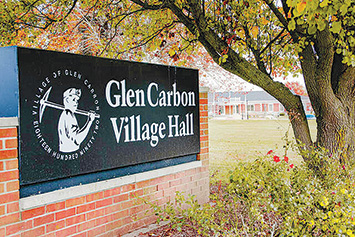Some Illinois municipalities trying to avoid new paid leave laws

By ELIZABETH DONALD
Illinois Correspondent
Glen Carbon, IL – Some Illinois municipalities are trying to avoid following the new paid leave laws passed by the state.
Glen Carbon village trustees are considering exempting the village from following the Illinois Paid Leave For All Workers Act, which requires employers to provide at least five paid days off per year to be used for any reason. Those paid days begin to accrue on the first day of employment and must be permitted no later than 90 days. Employers may require notice, but cannot deny the leave.
The AFL-CIO, AFSCME and other Labor groups cheered the law, along with business interests such as the Illinois Retail Merchants Association, Illinois Manufacturers Association and Chicagoland Chamber of Commerce.
MUNICIPAL LEAGUE BEHIND OPT-OUT EFFORT
But not in Glen Carbon, which is considering an ordinance proposed by the Illinois Municipal League (IML) to exempt themselves. Currently Glen Carbon employees start with two personal days, and after a year they receive 40 hours or five days of leave time, according to the Edwardsville Intelligencer.
The ordinance being considered by the village board states that following the law will “negatively impact” the village. “The village of Glen Carbon recognizes the importance of paid leave and currently provides reasonable paid leave benefits to its employees,” it states.
The act does not impact leave benefits subject to collective bargaining agreements, which often are more generous than those offered to non-union employees. It does, however, include part-time and seasonal employees as well as full-time workers – while park districts are exempted, there is no exemption for municipalities that operate their own parks and recreation services.
The IML then created model ordinances for home rule and non-home rule municipalities to opt out of the law with provided legal opinions that it is within their rights to do so. However, municipalities should act before the law becomes effective on Jan. 1, according to the IML’s legal analysis.
IML executive director Brad Cole also sent a letter to the legislative and policy director of the Illinois Department of Labor protesting the law as a “costly unfunded mandate on municipal governments and their taxpayers.” On behalf of the IML, he requested that municipalities should all be exempted or that the implementation of the law should be delayed.
ALSO ATTACKING LABOR
While the law doesn’t directly impact collective bargaining, Cole said that when union contracts expire, these paid-leave laws will become the baseline for Organized Labor at the negotiating table, which would result in requests for 40 more hours of paid leave on top of current union benefits. “We do not believe this was the intent of the General Assembly,” he said.
It was not immediately apparent how many cities and towns may consider trying to exempt themselves from the new law in the coming weeks before it takes effect. Glen Carbon’s village board will consider its ordinance at the Dec. 12 meeting, according to the Intelligencer. The full agenda was not yet available at press time.



Leave a Reply